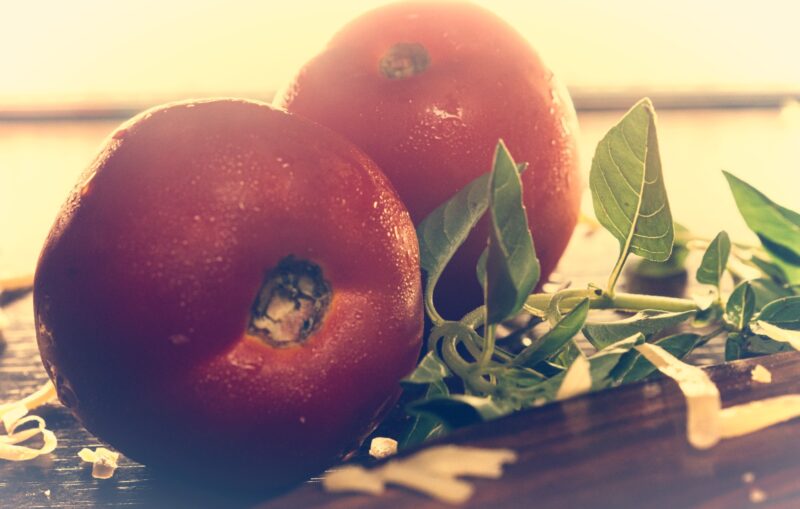We drove into Sant’Angelo in Colle late, much too late, because the GPS insisted on speaking Italian. The Tuscan countryside was dark. Of course it was; no street lights. Barely a trail, winding, meandering we snailed on as we bickered to a soundtrack of soapy ballads.
I now know to blame hunger for this sour bit of honeymoon; we had not eaten since Rome. Rome was hundreds of kilometers ago. I chewed my by-then-just-rubber gum furiously while you and your stomach grumbled. We entered the surely idyllic village in funereal silence.
It was idyllic, as charming as the travel guides had promised, but we could not see the vineyards, rippling hills, the quaint limestone facades, the terracotta roofs. We reached the top of the hill.
A dead end. The village square. A church. Sant’Angelo’s? The honey light of the only lamp post strategically by a bench. The latter itself strategically placed at the most panoramicò of puntos. You turned the ignition off. We cascaded out the doors.
Our legs tingled, as did our backs. I hobbled toward the bench. Stars. It had been months since I had seen the stars. A faint breeze, faintly tipsy with wine. Perhaps it was my imagination.
Turning around, I saw you walk toward the only house whose windows were spilling light, golden, onto a wooden table. A restaurant? Yes, but
“They’re closed,”
you grunted. I sighed. We could have been in paradise; it did not matter then. We turned back to the car we had rented for the trip we had dreamt up, the first of our “and then they lived happily ever after”…
Suddenly,
“Venite! Venite qui!”
An elderly gentleman with a beard and cane and – when in Tuscany, in a village, on a hill – suspenders and a pipe, was calling:
“Vieni mangiare!”
hand to his mouth, then down to his belly and, pipe and all, rubbing it to make sure we understood him.
“I thought you said the restaurant was closed.”
The signore had reached us.
“Benvenuti! Benvenuti! Nonna sta cucinando. Vieni mangiare!”
La nonna and he had seen us disembark from the bedroom on top of the restaurant with golden windows that summed up their life together;
They slept in the same bed every night and rose every day to the same fette biscottate and caffè latte. Then, every day but Sunday, she cooked and he greeted, served, and conversed with whoever stumbled upon this remote village.
This was their ever after: a wobbly wooden table on a hill at which he seated us. Acqua and bread. Glorious bread.
Two glasses:
“Rosso o bianco?”
Rosso. Rosso always.
In equal parts Italian and mime, no English, he explained that the wine was his, and that dinner would take a while,
“Perché i pici si fanno adesso. Freschi.”
The nonna was – was she really? – making the pasta from scratch.
In the kitchen – hanging garlic, bay leaves, copper pots and pans– she was indeed rolling out long stripes of yellow dough. Into the boiling water. Then she turned to peel the reddest tomatoes I have ever seen.
Lipstick red, ladybug red, late-August-sky-on-fire red, still steaming. I could smell them from the door. Tomatoes have a smell. The basil too, four pristine leaves picked from the pot that sat on the sill looking onto the square. The pici smelled just a breath past al dente – just as I like it. She crushed the tomatoes with her hands. A sprinkle of oregano. Garlic, mashed with a precise, well-practiced bang of her knife.
The basil was chopped and sprinkled last. And that was it. Finito! Simple. Impossible. Simply, impossibly magic.
You were waiting, sullen and tired, my companion ever after. The man placed the two dishes on the table:
“Buon appetito!”
One bite.
It took one bite. I saw your face change. An explosion of flavors. We both saw it then, I think: ever after, simple and now on a Tuscan hill.
Pici marinara. Pasta with tomato sauce. A piece of bread to fare la scarpetta of whatever remained. A summer wine, ripened on sun and earth and rain and wild, red berries. You. My senses still remember each ingredient.
We ate and drank and talked and laughed and kissed, needed and thought of nothing more than what we had that night at that table on a hilltop. Six years later, our ever after has been rich with many others; starry nights in starry restaurants in which food came under cloches, wines with descriptions, bands répertoires, and chandeliers dimmers. Magnificent, but they now taste mild, somewhat indistinct on the palate of my memory. Tonight, let’s have pici.
Let’s fly to Rome, rent a car and insist it only speak Italian. Let’s get lost. Let’s drive in, sourly and late, into a Tuscan village. Let’s reach the top of the hill, starving, grumpy, knock on the door of the house with golden windows. Let’s ask the couple to have a glass of wine with us this time.
